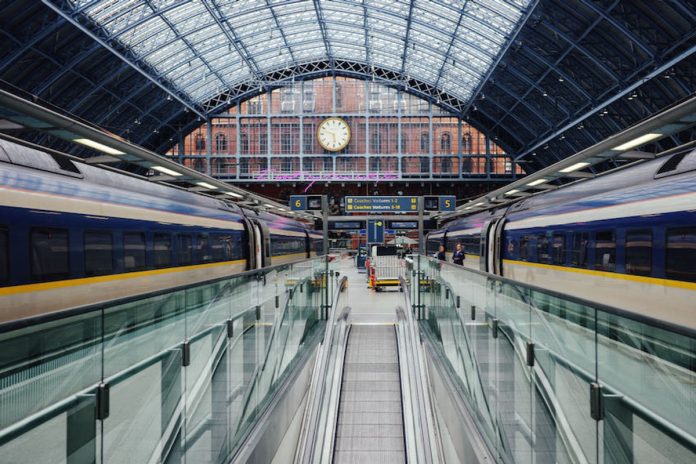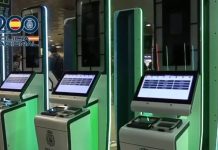The UK government is providing £10.5 million in funding to assist prevent “excessive” queues at key borders when the EU’s recent Entry-Exit System (EES) is finally introduced within the autumn.
EES would require visitors from third countries, reminiscent of the UK, to have digital photos and fingerprints taken when entering the EU. The system is attributable to be launched on 10 November after a succession of delays brought on by technical problems.
In preparation for the EU’s recent digital border system, the UK government said it will be providing funding to international rail operator Eurostar, in addition to Eurotunnel and the Port of Dover, to try to forestall long queues when the EES comes into operation.
Lilian Greenwood, the UK’s way forward for roads minister, said: “Nobody desires to see excessive queues at our ports, which is why we’re providing this funding to make sure our borders are as prepared as possible for the upcoming change – despite EES being an EU initiative.
“Since coming into government, we’ve got been reviewing plans and closely supporting ports to be certain that they’ve the fitting processes in place in order that EES registration may be smooth and queue times kept to a minimum.”
Each of the three ports, including Eurostar’s UK operations at London’s St Pancras rail station, will receive £3.5 million in funding to arrange for EES.
Eurostar has already began installing 49 recent kiosks to deal with EES requirements. The extra cash from the UK government will likely be used to put in more facilities, in addition to to “undertake rigorous testing” to cut back the chance of disruption, and for the recruitment and training of staff.
Simon Lejeune, Eurostar’s chief safety and stations officer, said the operator had already made “substantial investments in our station infrastructure”.
“With support from the federal government, we’ve got enhanced our facilities and upgraded our technology to fulfill the brand new requirements,” added Lejeune. “Eurostar will likely be fully prepared and compliant by November, ensuring a smooth transition for all our passengers.”
Getlink, which runs Eurotunnel shuttle services between the UK and France, said it had been adapting its terminal for EES for the past two years.
Yann Leriche, CEO of Getlink, said: “This funding will likely be used to check and add recent technology on the UK terminal, that will likely be deployed during peak periods, providing more kiosks, if needed, along with the 106 already installed within the UK, plus the recruitment and training of staff whose focus will likely be to help EES passengers.”
Escape the ordinary and discover the extraordinary! From bustling cities to serene landscapes, every journey begins with a single step—let us guide yours. Enjoy curated itineraries, hidden gems, and hassle-free bookings designed for explorers at heart. Whether it's a weekend getaway or a globe-trotting adventure, your Next unforgettable experience is just a click away.










